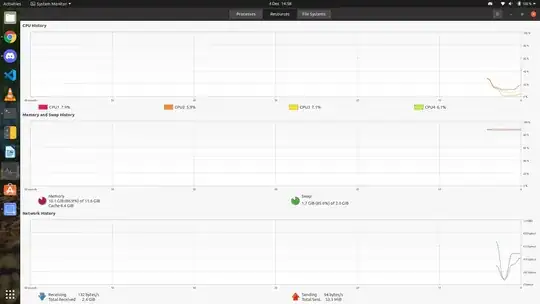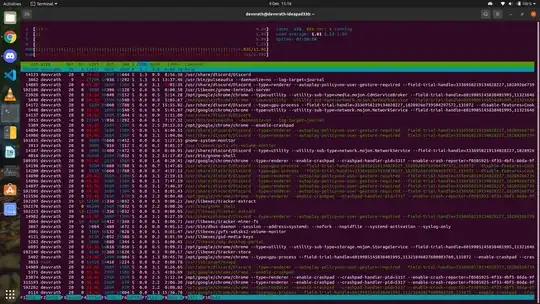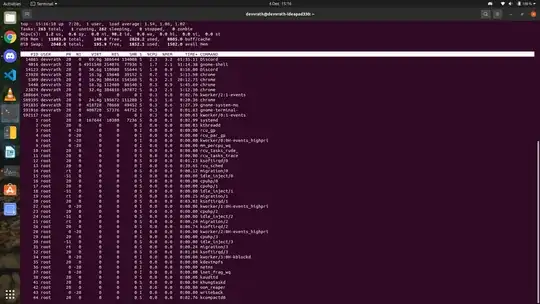Ubuntu 20.04.3 LTS is using a lot of memory, (10.1GB out of 12GB of RAM). The RAM fills up over time and reaches dangerously high levels of usage, even when I am using only 2 applications.
I've tried to follow the other suggestions posted on this forum about similar issues. I've run htop and top but they don't return useful information, ie it shows Chrome and Discord using the most amount of RAM - just 2-4% each. Java, MySQL, Apache, I've read are usually the culprits of high RAM usage, but Java isn't even running, and the other listed processes are barely using 0.1% of RAM.
Another thing I've noticed is, upon closing Chrome, the memory usage instantly drops from 10.1GB to only 1.7-2GB of usage. I dont understand this because according to htop, Chrome is using only 2% or so of memory.
2-4% should not be hogging up the entire memory, so I ran free -m and found out that buff/cache and shared usage is very high - 8.8GB and 7.2GB respectively. What are these and why are they using up so much memory? The system freezes and behaves very slowly during use. CPU usage is not very high either - hitting a max of 22% occasionally.
Here are my free -m results
On opening System Monitor,
My htop and top results respectively,
As mentioned before, I'm running Ubuntu 20.04.3 LTS. Kernel version is 5.11.0-41-generic
Please help. My computer is becoming increasingly difficult to use.




VIRTcollomn. There is a lot of cached stuff there. – mikewhatever Dec 04 '21 at 10:48topand set the terminal on top, then use your computer and keep an eye on what happens. That may allow you to identify when it happens. – vanadium Dec 04 '21 at 11:46preload, which, if I remember correctly is a daemon which determines the most used applications and then preloads them in RAM. I don't think I had preload configured properly. As a result, it appears to have cached too much. I decided to uninstall preload, and after a reboot, the issue seems to have been solved. – Devvrath Dec 06 '21 at 15:43